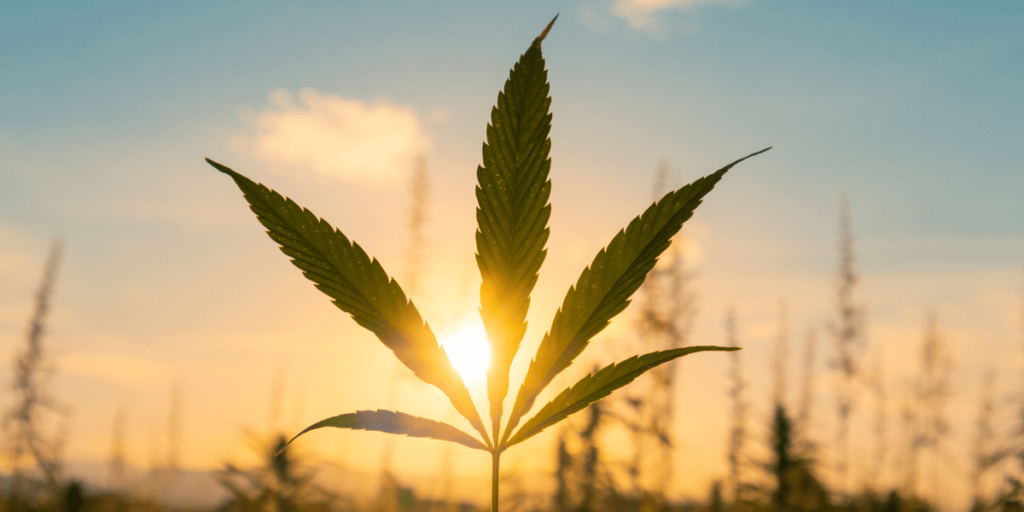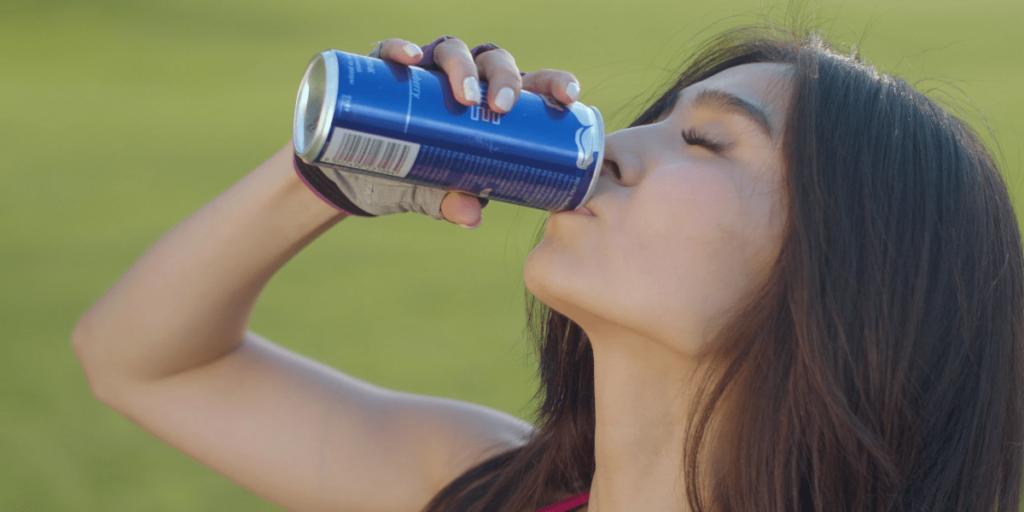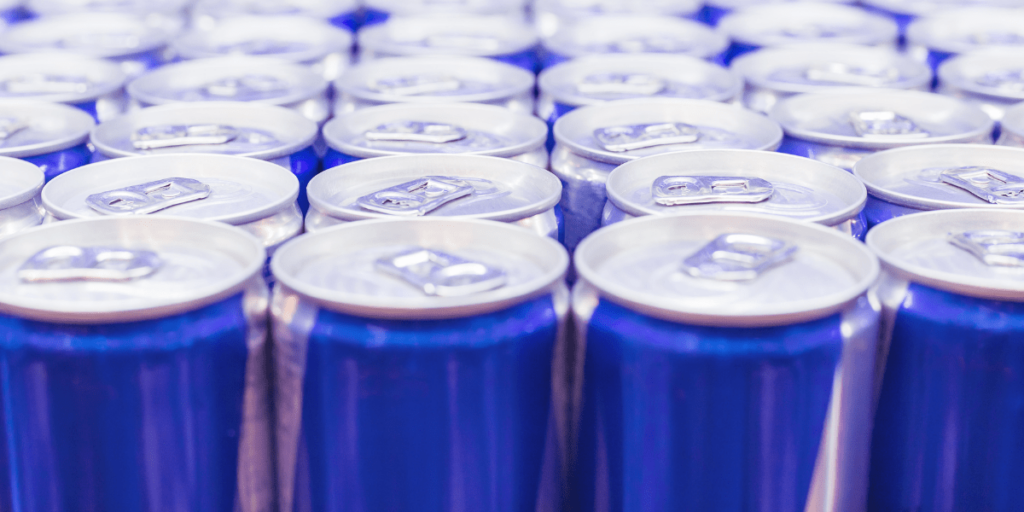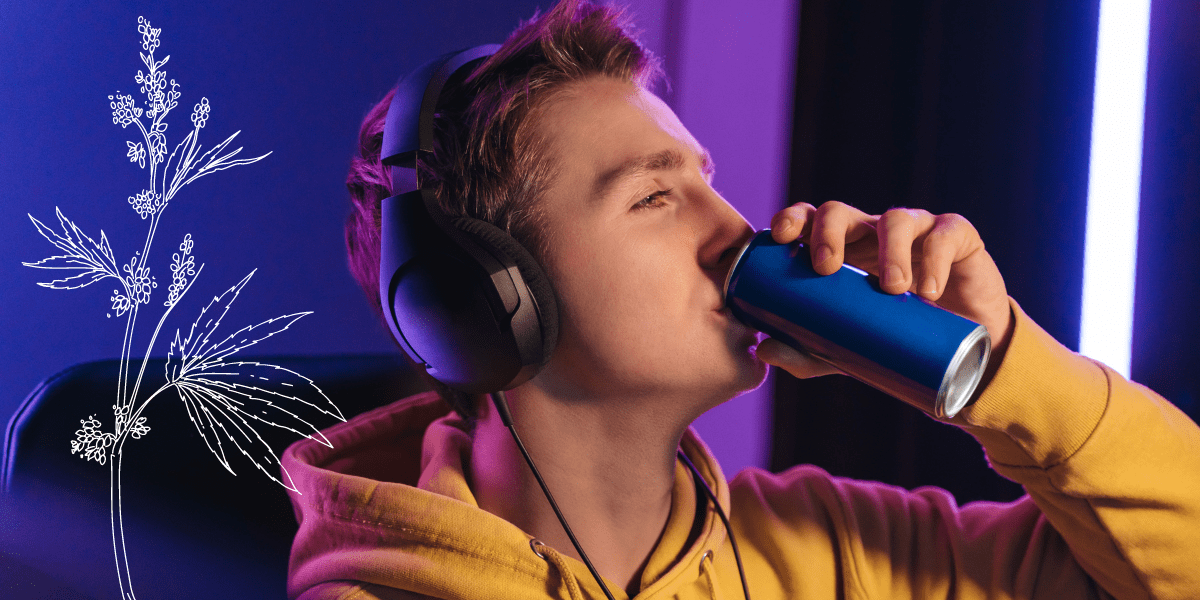In recent years, mixing energy drinks with various “healthy” ingredients has become a popular trend in the United States. This surge in energy drink consumption, particularly among teenagers and young adults, has raised public health concerns.
Energy drink sales have skyrocketed from $11.05 billion in 2017 to $18.51 billion in 2023, becoming a go-to choice for many seeking an energy boost. Despite their popularity, these drinks come with potential health risks that are not widely understood. Similarly, cannabis beverages are gaining traction as a potentially safer alternative to alcohol, although they are not yet widely available. This limitation may lead some individuals to create their cannabis-infused drinks at home.
Given the popularity of mixing energy drinks with alcohol, it is plausible that people might also be combining cannabis tinctures with energy drinks. Let’s delve into why this combination can be hazardous to your health.
The Rise of Energy Drink Consumption
Energy drinks have become a staple for those needing a quick energy boost, from students pulling all-nighters to professionals facing tight deadlines. These beverages promise enhanced alertness and stamina thanks to their mix of caffeine, Taurine, and B vitamins. Eye-catching marketing and endorsements from influencers and athletes have further fueled their appeal. However, as their popularity grows, so do concerns about their health impacts.
Reports of health issues related to energy drink consumption are becoming more common, prompting discussions about their long-term health risks. Understanding the ingredients and their effects is crucial for making informed choices and reducing your risk of experiencing adverse health effects.
Common Ingredients in Energy Drinks and Their Effects
Energy drink companies have effective marketing tactics, with messaging that leads consumers to believe that it is a “natural energy boost” to help combat fatigue. Something we can all relate to in our busy lifestyles.
However, while there are some healthy ingredients (such as B vitamins), energy drinks often contain a mix of stimulants and other compounds that can have significant effects on the body. Here are some of the most common ingredients and their potential health risks:
Caffeine
The primary stimulant in energy drinks, caffeine, can increase alertness and improve concentration. However, excessive intake can lead to jitteriness, anxiety, insomnia, increased heart rate, high blood pressure, and digestive issues. It can also interact with medications, potentially causing harmful side effects.
Caffeine can also exacerbate symptoms of anxiety and paranoia, especially in high doses. As you know, some strains can also amplify feelings of anxiety, so mixing cannabis with high doses of caffeine can have unpleasant side effects.

Taurine
An amino acid that supports cardiovascular function and energy production. While generally safe in moderation, high doses can affect blood pressure and electrolyte balance. Taurine is naturally found in meat, fish, and dairy products and is crucial for the functioning of skeletal muscle, the cardiovascular system, and the central nervous system.
However, the long-term effects of high taurine intake through energy drinks are not well-studied. Currently, science thinks that Taurine is beneficial and well-tolerated. The kidneys metabolize Taurine, and excessive intake can strain kidney function, particularly in individuals with preexisting kidney conditions.
Caffeinated energy drinks can have high levels of Taurine, which may not be healthy for patients with diabetes or patients who are receiving dialysis treatments for kidney failure.
B Vitamins
Essential for converting food into energy and supporting brain function. High doses can cause nerve damage (especially B6) or liver toxicity. B vitamins like B6 and B12 play a role in maintaining energy levels, brain function, and cell metabolism. While they are water-soluble and typically excreted in urine, consuming them in excessive amounts through energy drinks can lead to adverse effects.
Sugar
Provides a quick energy boost but can lead to crashes, obesity, diabetes, heart disease, and dental issues. High sugar intake is also linked to energy crashes and mood swings. Excessive sugar consumption can lead to a host of health problems, including metabolic syndrome, increased risk of type 2 diabetes, and cardiovascular diseases.
Guarana
A plant extract containing caffeine provides similar stimulant effects. Overconsumption can cause jitteriness, insomnia, increased heart rate, and high blood pressure. Guarana seeds contain more caffeine than coffee beans, and its inclusion in energy drinks can significantly increase the caffeine content, sometimes unbeknownst to the consumer.
Ginseng
Known for its stress-reducing properties, ginseng can improve physical endurance and cognitive function. However, it can also cause headaches, sleep disturbances, digestive problems, and blood pressure changes. Ginseng is an adaptogen that helps the body cope with stress, but its interactions with various medications and its long-term safety profile require careful consideration.
L-Carnitine
It helps with fat metabolism and energy production. High doses can cause gastrointestinal distress and potential cardiovascular risks. L-carnitine is an amino acid derivative that plays a critical role in the production of energy by transporting fatty acids into your cells’ mitochondria. These mitochondria act as engines within your cells, burning these fats to create usable energy.
Understanding these ingredients helps consumers make better decisions about energy drink consumption, considering potential health risks and interactions with medications.

Health Risks Associated with Energy Drinks
The widespread use of energy drinks has led to growing concerns among health professionals about their potential risks. Some of the major health risks associated with these beverages include:
Cardiovascular Problems
Not many people know that energy drinks can increase heart rate and blood pressure, which can lead to serious cardiovascular issues, especially in individuals with preexisting conditions. There have been reports of heart palpitations, chest pain, and, in severe cases, cardiac arrest linked to energy drink consumption.
Mental Health Issues
The high caffeine content in energy drinks can exacerbate anxiety, stress, and panic attacks. For individuals with anxiety disorders, energy drinks can trigger or worsen symptoms.
Sleep Disturbances
Caffeine is known to interfere with sleep patterns. Consuming energy drinks, especially in the afternoon or evening, can lead to insomnia and disrupted sleep cycles, impacting overall health and well-being.
Gastrointestinal Issues
Ingredients like caffeine and sugar can cause gastrointestinal distress, including acid reflux, stomach pain, and nausea. Long-term use can lead to more serious digestive issues.
Dependency and Withdrawal
Regular consumption of high-caffeine beverages can lead to dependency. Abrupt cessation can cause withdrawal symptoms such as headaches, fatigue, irritability, and difficulty concentrating.
Risky Behaviors
The false sense of alertness provided by energy drinks can lead to risky behaviors, such as driving under the influence or engaging in hazardous activities.

Cannabis Beverages: Are They A Healthier Alternative?
Cannabis-infused beverages are emerging as a popular alternative to alcohol, offering relaxation and euphoria without the hangover. These drinks combine cannabinoids like CBD and THC with various flavors, catering to health-conscious consumers seeking a safer way to unwind.
Cannabis beverages provide relaxation and stress relief without the harmful effects associated with alcohol, such as liver damage and addiction. They offer controlled dosages, ensuring a consistent experience and minimizing the risk of overconsumption. These beverages are also gaining popularity in social settings, offering an inclusive option for those who avoid alcohol for health or personal reasons.
What States Sell Cannabis Beverages?
Cannabis beverages are becoming more available in states where cannabis is legal, such as California, Colorado, Oregon, Nevada, Washington, Massachusetts, and Michigan. They can be purchased from licensed dispensaries and, in some cases, online delivery services.
What Types of Cannabis Beverages Are Available?
Cannabis-infused beverages are rapidly gaining popularity as a healthier alternative to traditional alcoholic drinks in the United States. As more states legalize cannabis for recreational and medicinal use, these innovative beverages offer consumers a way to enjoy the benefits of cannabis without the adverse effects associated with alcohol.
These drinks come in a wide variety of forms, catering to diverse tastes and preferences, and are becoming a staple at social gatherings, providing a relaxing and enjoyable experience without the hangover. Here are some of the different types of cannabis-infused beverages available for consumption:
- Sodas
- Seltzers
- Wine
- Juices
- Sparkling water
- Teas
- Iced coffees
- Dried drink mixes
- Liquid drink enhancers (drops added to water)
Each of these options offers a unique way to incorporate cannabis into your lifestyle, whether you’re looking for a refreshing beverage on a hot day or a calming drink to unwind in the evening. Currently, the Schedule I status of cannabis makes it illegal to nationally distribute THC-infused beverages, but that could change in the future if cannabis is moved to Schedule III on the Controlled Substances Act.
The Dangers of Mixing Energy Drinks and Cannabis
While many medical cannabis users avoid alcohol, they might turn to energy drinks to stay alert. However, mixing caffeine and cannabis can have dangerous effects:
Increased Heart Rate
Both THC and alcohol can elevate heart rate, which can lead to tachycardia, a condition characterized by a rapid heart rate exceeding 100 beats per minute. This increase can cause palpitations, or the sensation of a racing heart, as well as chest pain and other cardiovascular complications.
The combined effect of THC and alcohol can strain the heart, particularly in individuals with preexisting heart conditions, increasing the risk of heart attacks and other serious cardiovascular events. The heightened heart rate can also lead to dizziness and fainting, further underscoring the dangers of mixing these substances.
Heightened Anxiety
Both THC and alcohol can independently increase anxiety levels, but when combined, their effects can be significantly amplified. This combination can trigger severe anxiety attacks and panic, particularly in individuals who are already prone to anxiety disorders.
The psychoactive effects of THC can lead to heightened sensory perception and altered mental states, which, when mixed with the depressive effects of alcohol, can create an unpredictable emotional response. This can result in overwhelming feelings of fear, paranoia, and distress. Additionally, the disinhibiting effects of alcohol can reduce one’s ability to manage these intense feelings, exacerbating the overall anxiety experience.
Impaired Judgment and Coordination
Mixing THC and alcohol can significantly impair judgment and coordination. Cannabis affects motor skills, reaction time, and cognitive functions, making it difficult to perform tasks that require precise movements and quick decisions.
When combined with alcohol, which also impairs cognitive functions and lowers inhibitions, the effects can be even more pronounced. Alcohol’s depressive effects on the central nervous system can dull the senses and reduce reaction times, while THC’s psychoactive properties can alter perception and spatial awareness.
This combination is particularly dangerous because it increases the likelihood of engaging in risky behaviors, such as driving under the influence. Individuals may feel more confident in their abilities than they actually are, leading to poor decision-making.
The dual impairment can result in a lack of coordination, making it difficult to control a vehicle, and poor judgment, which can lead to accidents. The combination of these substances exacerbates the risks, making activities like driving extremely hazardous and significantly increasing the potential for accidents and injuries.

Dehydration and Overstimulation
Combining THC and alcohol poses a significant risk of dehydration and overstimulation. Alcohol acts as a diuretic, promoting fluid loss and increasing the risk of dehydration. THC, while not a direct diuretic, can contribute to dehydration through side effects such as dry mouth. When these two substances are combined, the dehydrating effects are compounded, leading to more severe symptoms such as dizziness, lightheadedness, and heat exhaustion.
Overstimulation is another critical concern. THC can heighten sensory perception and increase heart rate, while alcohol can initially cause a false sense of euphoria and energy. This combination can lead to a state of over-arousal, making it difficult for the body to regulate its normal functions.
The strain on the cardiovascular system and the central nervous system can result in restlessness and insomnia, disrupting sleep patterns and overall health. The combined effects can be particularly dangerous in hot environments or during physical activities, significantly increasing the risk of heat exhaustion and related complications.
Nausea and Gastrointestinal Issues
Mixing THC and alcohol can exacerbate nausea and gastrointestinal (GI) issues, leading to severe discomfort. Both substances independently have the potential to irritate the stomach and intestines. Alcohol, being a known irritant, can cause inflammation of the stomach lining, leading to pain, nausea, and even vomiting. THC, while often used medicinally to combat nausea, can paradoxically cause stomach discomfort and cyclic vomiting syndrome in some individuals, particularly with chronic use.
When combined, the adverse effects on the gastrointestinal system can be intensified. This synergistic impact can result in pronounced nausea, severe stomach pain, and prolonged episodes of vomiting. Such gastrointestinal distress can lead to dehydration and electrolyte imbalances, further complicating overall health.
Moreover, both THC and alcohol can impair digestion and nutrient absorption. Alcohol consumption can damage the mucosal lining of the GI tract, reducing its ability to absorb essential nutrients. This can lead to diarrhea and poor digestion, causing significant nutritional deficiencies over time. THC can slow down the gut’s motility, contributing to gastrointestinal stasis and exacerbating issues like constipation or diarrhea.
The combination of these effects can severely compromise the digestive system’s efficiency. Chronic use of both substances can lead to long-term damage to the GI tract, impairing its ability to absorb vital nutrients properly. This can result in deficiencies in vitamins and minerals, which are crucial for maintaining various bodily functions, including immune response, bone health, and cognitive function.
Choose A Different Mix For Cannabis Beverages
Mixing energy drinks with cannabis is not safe. The combination can lead to increased heart rate, heightened anxiety, impaired judgment, dehydration, and gastrointestinal issues. If you enjoy cannabis, it’s best to avoid energy drinks and opt for other mixers. Remember to make informed choices can help you enjoy the benefits of cannabis without harming your health.

Lori Reese is a healthcare CMO, and patient advocate with a passion for personal wellness. Her goal is to connect patients to educational resources that help them live better. In her free time, Lori enjoys art, fishing, meditation, live music, and exploring her new home in Austin, Texas.






